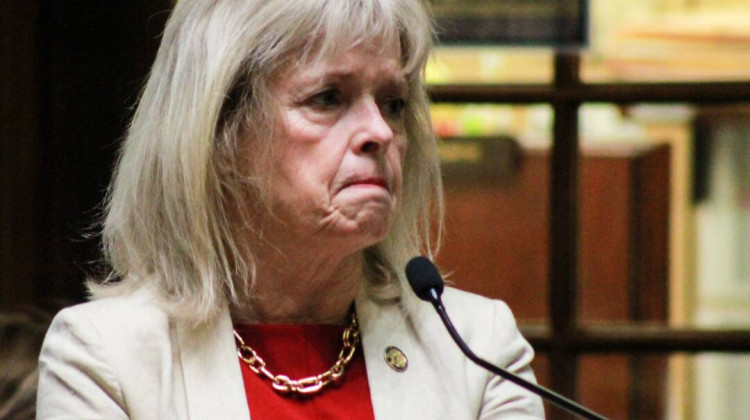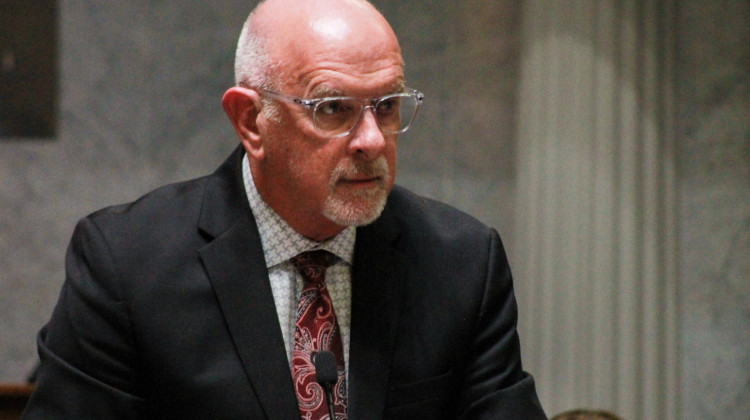
A preliminary injunction in a lawsuit to stop Indiana’s “Don’t Say Gay” law has been denied by a federal judge.
Lauren Chapman/IPB NewsA preliminary injunction in a lawsuit to stop Indiana’s “Don’t Say Gay” law has been denied by a federal judge.
HEA 1608 prohibits the “instruction of human sexuality” in pre-kindergarten through third grade, which many critics say is too broad. Additionally, it would require teachers to notify parents if their child requests to go by a different name or pronouns. Teachers are allowed to answer questions about these topics, but only if prompted by students.
The lawsuit was filed on behalf of Indianapolis Public Schools teacher Kayla Smiley by the ACLU of Indiana. Smiley said her classroom contains age-appropriate books with LGBTQ+ themes and she questioned whether this would be prohibited under this law.
Court documents say the law doesn’t define the terms “instruction” and “human sexuality” – which has caused confusion over what can and cannot be taught. Smiley said she fears losing her teaching license if she demonstrates support for the LGBTQ+ community with stickers on her water bottle or bumper stickers on her car.
Smiley also said the law’s vagueness leaves her speech restricted and violates her First Amendment rights.
A federal judge denied the preliminary injunction motion for the lawsuit.
READ MORE: ACLU files lawsuit to prevent Indiana's 'Don’t Say Gay' law from taking effect
Join the conversation and sign up for the Indiana Two-Way. Text "Indiana" to 73224. Your comments and questions in response to our weekly text help us find the answers you need on statewide issues.
In his denial, federal Judge James Patrick Halon said Smiley had a “heavy burden” to prove the law violates her First Amendment rights and was therefore unconstitutional.
During the legislative session, many opponents of the bill said the definition for “human sexuality” and “instruction” were too broad. The bill’s author and sponsor did not provide further detail on these definitions.
In a tweet, the ACLU of Indiana said Monday its attorneys “are still assessing next steps.”
Violet is our daily news reporter. Contact her at vcomberwilen@wfyi.org or follow her on Twitter at @ComberWilen.
9(MDAyMzk1MzA4MDE2MjY3OTY1MjM5ZDJjYQ000))
 DONATE
DONATE






 Support WFYI. We can't do it without you.
Support WFYI. We can't do it without you.